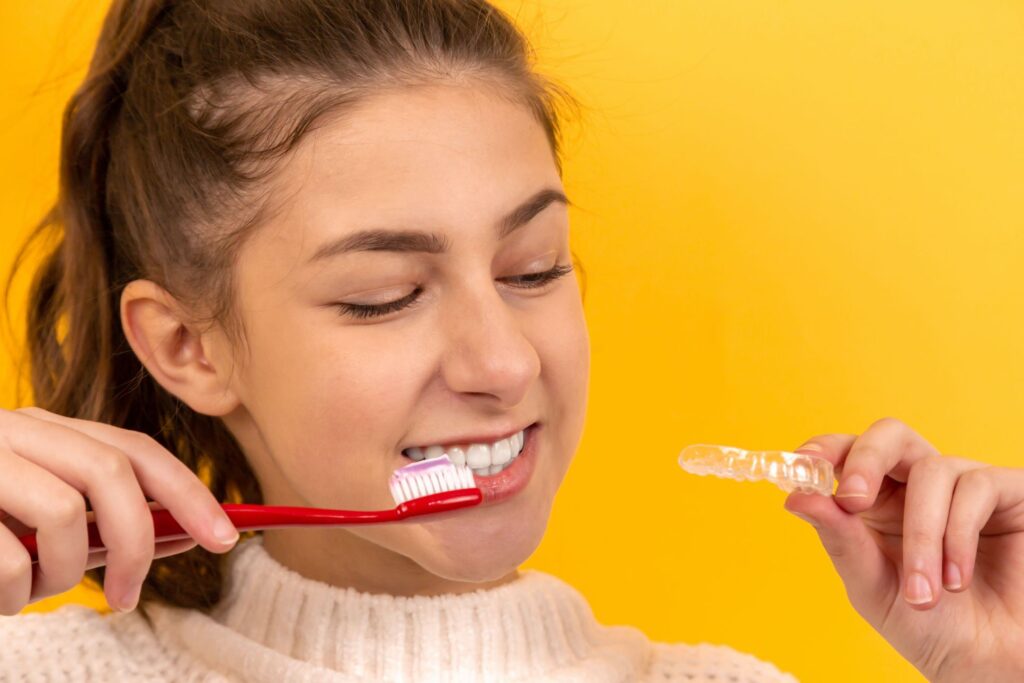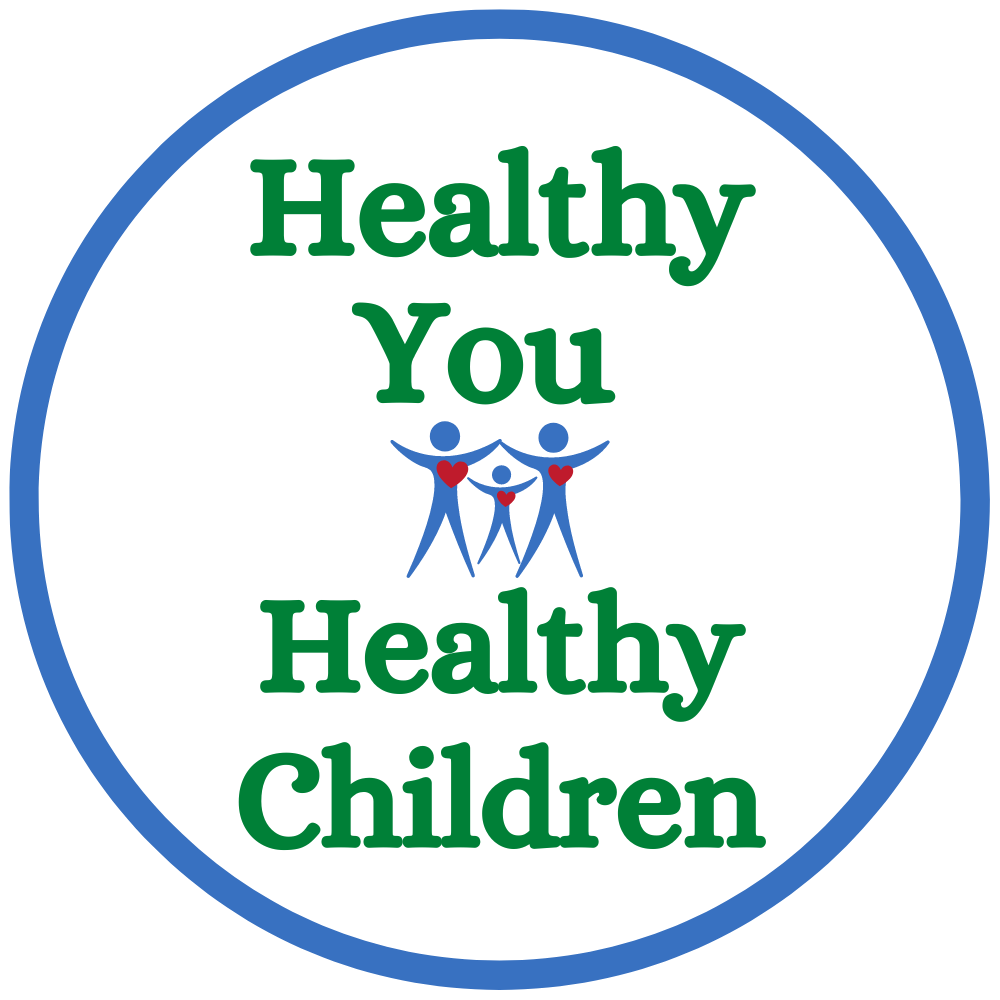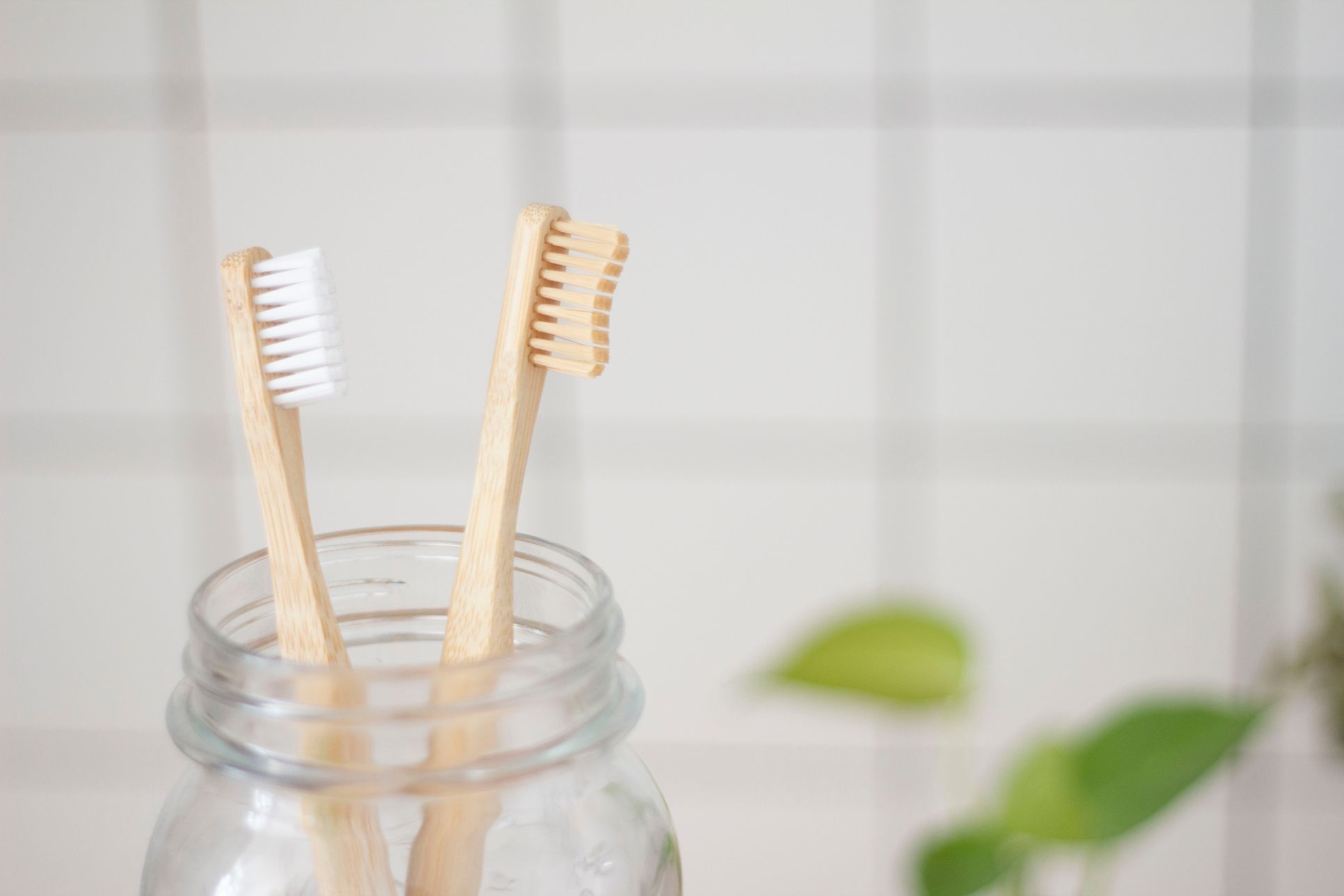Taking care of our Oral Health is an essential aspect of a healthy lifestyle like nutrition or sleep. Teaching our children from a young age about good oral health habits and taking care of their teeth before the 1st baby tooth comes out is critical. Let’s review some key points about the topic that I gathered from the CDC (Centers for Disease Control and Prevention) and AAP (American Academy of Pediatrics).
The facts
According to the CDC, cavities (a.k.a. caries or tooth decay) are among the most common chronic diseases of childhood in the United States. They also mentioned the following:
- About 1 of 5 (20%) children 5 to 11 years have at least one untreated decayed tooth.
- 1 of 7 (13%) teens aged 12 to 19 years have at least one untreated decayed tooth.
- Children aged 5 to 19 years from low-income families are twice as likely (25%) to have cavities than children from higher-income households (11%).
According to the AAP, by age 5, nearly 50% of children have one or more cavities.

What is a cavity?
A cavity is a tiny hole in your tooth. It begins with plaque. Plaque is a sticky film of bacteria that forms in your teeth constantly. Sugars in foods and beverages make these bacteria produce acid that attacks the enamel (hard outer layer of the tooth that acts as a protection barrier). Because plaque is sticky, it keeps the acid in contact with the enamel and eventually breaks it up, leading to cavity formation.
According to the ADA (American Dental Association), cavities are more common in children, but as you know, they can happen in adults as well.
Why is oral health so important?
- The mouth reflects our general health and well-being. Dental caries and periodontal diseases being the most common problems with our oral health- affects our general health and well-being through life.
- In babies, tooth decay is called nursing caries or baby bottle tooth decay. It can develop as soon as the 1st tooth comes up.
- Some parents think that cavities on baby teeth are not a problem. They will eventually fall out. But, dental decay on baby teeth negatively affects permanent teeth and becomes future dental problems.
- If not treated, cavities can cause pain and infections leading to problems eating, speaking, learning, and playing.
- According to data, children with poor oral health more frequently miss school days and receive lower grades than children who don’t.
- Cavities are preventable. You and your kids can follow the following recommendations to avoid them.
Dental Health Recommendations:
#1 – Babies:
- Moms have to take good care of their oral health during pregnancy and after babies are born. A good dentist will see moms during pregnancy and even advise them to have checkups more often.
- Do not “clean” the pacifier by putting it in your mouth, and do not share utensils- you can transfer germs that can cause cavities to your children.
- For breastfed and bottle-fed babies:
- Birth to 1st tooth: clean the baby’s mouth, wiping the gums gently with a clean baby washcloth twice a day: after 1st feeding and before bed.
- 1st tooth to 36 months: brush teeth twice a day with a soft and small-bristled toothbrush with a smear (grain of rice) of fluoride toothpaste—brush for 2 minutes in babies 12 to 36 months old, after breakfast and before bed.
- Do not put your child to bed with a bottle or food. It is a risk for developing cavities but also a chance for choking and ear infections.
- Give only water in between meals. Avoid sugary beverages.
- The AAP does not recommend juice for babies younger than 6 months. Between 6 and 12 months, if you offer juice to your children, it should be diluted with water (half and half), served only during meals, and no more than 4 ounces per day. For children 1 to 6 years, only 4 to 6 ounces per day.
- Teach your child to drink from a regular cup as soon as possible—best between 12 and 15 months.
- Avoid or limit the amount of sweet or sticky foods your child eats. Examples are candy, cookies, gummies, crackers, and chips (read more below).
- Parents should limit food and drinks exposure during the day to 3 meals and 2 snacks. Options should be healthy. Frequent exposure to sugar in food and beverages will increase the chances of cavities.
- Find a pediatric dentist and make an appointment for your child before the age of 1. If you don’t find one, your pediatrician can check your child’s mouth and apply fluoride varnish during a regular visit to help prevent cavities.
Drinking water with fluoride in it is beneficial. Fluoride is a safe and helpful mineral that fights cavities by slowing down or stop from forming. To sum up, it makes teeth stronger and helps rebuild enamel (the outer layer of the tooth, as I mentioned above).
If your tap water comes from a well or another source without fluoride, you may need to test a sample.
If not, you can contact your water utility company to find out. The CDC has information about water systems on the My Water’s System website (here).
If water doesn’t contain enough fluoride (OPTIMAL IS 0.7 mg/L), your children may need a fluoride supplement (drops, chewable tablets, lozenges). Your children’s dentist or doctor will give you a prescription for it.

#2 – Children:
- Make oral hygiene part of their daily routine early.
- Brush twice a day, after breakfast and before bed.
- Floss once a day, before bedtime.
- Help them brush their teeth. Try to brush the teeth first, and then let them finish brushing. So, not to miss any area (especially the back). They cannot brush their teeth properly until about 7 to 8 years old.
- Choose a toothbrush according to your children’s age with soft bristles.
- By age 3, you can use a pea-size amount of fluoride toothpaste to prevent cavities. You may need to try different brands for one that tastes good to your children. Try teaching them not to swallow it. Swallowing too much fluoride can cause white or brown stains on the adults’ teeth.
- Continue with Dental Check-Ups with your children’s dentist.
- They will make sure the teeth and gums are in good health and treat oral problems early.
- In addition, they will apply fluoride varnish (topical fluoride for extra protection against cavities) and give you a prescription for an oral fluoride supplement if needed, as mentioned before.
- The dentist can also apply dental sealants to teeth when appropriate to prevent decay.
- Your pediatrician may also apply fluoride varnish during your children’s regular checkups. Starting at 6 months old until 5 years old, every six months, especially important for children who have no access to a pediatric dentist.
#3 – Pregnant moms:
- Pregnancy makes moms more prone to cavities and gum problems. As a result, your baby’s health can be affected.
- See a dentist regularly during pregnancy. It is safe.
- Brush your teeth twice a day.
- Floss every day.
- If you throw up, rinse your mouth with one teaspoon of baking soda diluted in a glass of water to help wash the stomach acid away and keep your enamel safe.
- As mentioned before, continue with your regular dental care after you have your baby. This step is crucial for you and your baby’s oral health.
What are the risk factors for cavities?
According to the CDC, your children’s chance of getting cavities can be higher if:
- Family members have cavities
- They eat sugary drinks and beverages frequently and in between meals.
- They have special health care needs.
- They wear orthodontics, braces, or oral appliances (like retainers).
If any of the above applies to your children, they need extra oral care, so talk to your children’s doctor or dentist.

The vital role of a healthy diet:
As you may imagine, SUGAR is one of the biggest problems for oral health. The longer and more frequently your children’s teeth contact sugary foods or beverages, the greater the risk for cavities. To learn more about Sugars and your health, please read my article about the topic (here).
- A healthy and balanced diet is essential for your children’s growth and their teeth development. It is also important for their gum health.
- A diet high in sugars and starches puts your children at risk of developing oral health problems:
- Avoid processed foods containing added sugars. Remember that even foods like peanut butter, ketchup, salad dressing, sauces can contain added sugars.
- It is better not to have sugary and processed treats at home to steer clear of them. Treats should be occasional.
- Starchy foods examples are bread, crackers, pasta, chips, and pretzels. Other whole foods contain natural sugars like fruits, a few vegetables, and milk.
- Choose to give the whole foods containing natural sugars and starches at mealtime instead of snack time. It is safer this way.
- Remember to offer your kids 3 meals and 2 snacks per day, choosing nutritious options. Eating all the time is not good for your children’s oral health.
- Avoid sticky sweets, treats, or snacks as much as possible. They cannot be washed away by saliva. My kids’ pediatric dentist advised me to choose chocolate (not sticky and saliva wash it away) if I offer a sweet treat to them, and it makes total sense.
- Brush your kids’ teeth after a sugary treat.
- Give them water to drink, especially if your baby or toddler is still using a sippy cup.
- Review the above recommendations for juice.
- A healthy and balanced diet does not assure getting the right amount of fluoride. Review the section about fluoride in water and fluoride varnish.
- As mentioned above, do not nurse your baby to sleep or put him in bed with food or a bottle with formula/milk/juice/sugary fluid. Protect them from oral health problems by putting them to bed only with a pacifier or a bottle of water.
Final thoughts:
Oral health has to become part of your family’s routine and part of your healthy lifestyle. As you can see, healthy nutrition is essential for your children’s growth and overall health, including oral health. Your children’s doctor and dentists are the best information resources, and regular checkups with them will ensure that your children’s oral health is maintained. Once again, I will emphasize the importance of being a role model to your kids (yes, including oral health), and you will see them easily adopt brushing, flossing, and more.
Join my email list and become a member of my tribe of healthy busy parents!
If you need extra support in your journey to a healthier life, visit my Work with Me (here) section or Schedule a Call (here) with me to find out more about my Coaching Program.






